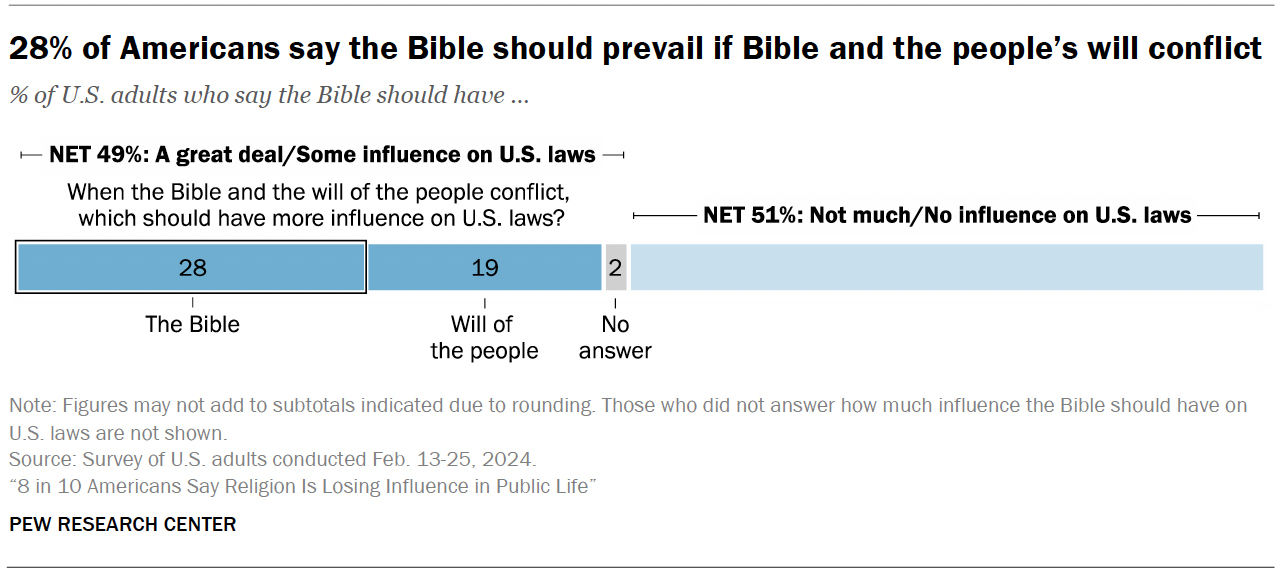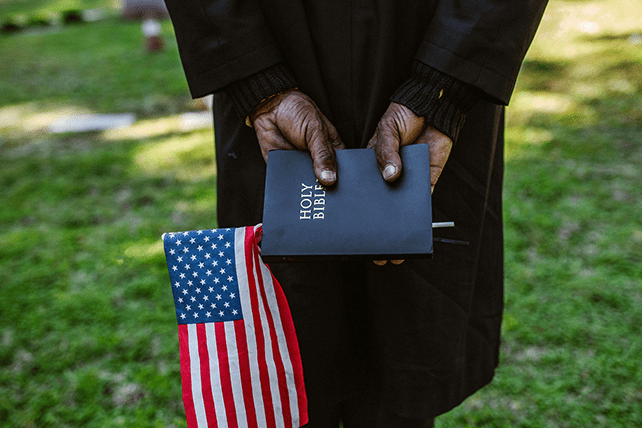About 45% of those polled said they had heard of Christian nationalism or read about it, with 54% saying they had never heard of the ideology — the same percentages as in September 2022. Overall, 25% had an unfavorable view of Christian nationalism, whereas only 5% had a favorable view and 6% had neither a favorable nor unfavorable view.
Researchers also pressed respondents on fusions of religion and politics, revealing a spectrum of views. A majority (55%) said the U.S. government should enforce the separation of church and state, whereas 16% said the government should stop enforcing it and another 28% saying neither or had no opinion. Meanwhile, only 13% said the U.S. government should declare Christianity the nation’s official religion, compared to 39% who believed the U.S. should not declare Christianity the state religion or promote Christian moral values. A plurality (44%) sided with a third option: the U.S. should not declare Christianity its official faith, but it should still promote Christian values.
When asked whether the Bible should have influence over U.S. laws, respondents were evenly split: 49% said the Bible should have “a great deal” of or “some” influence, while 51% said it should have “not much” or “no influence.”
But things looked different when Pew asked an additional question of those who supported a Bible-based legal structure: If the Bible and the will of the people come into conflict, which should prevail? Not quite two-thirds of that group — or 28% of Americans overall — said the Bible, but more than a third of the group (or 19% of the U.S. overall) said the will of the people should win out.

“28% of Americans say the Bible should prevail if Bible and the people’s will conflict” (Graphic courtesy Pew Research Center)
Here again, opinions have remained largely static, with researchers noting the numbers “have remained virtually unchanged over the past four years.”
Respondents were also asked whether they believed the Bible currently has influence over U.S. laws, with a majority (57%) agreeing it has at least some. But there were notable differences among religious groups: White evangelicals (48%) and Black Protestants (40%) were the least likely to say the Bible has at least some influence on U.S. law, compared to slight majorities of white non-evangelical Protestants (56%) and both white and Hispanic Catholics (52% for both). The religiously unaffiliated (70%), Jewish Americans (73%), atheists (86%) and agnostics (83%) were the most likely to agree that the Bible is a significant factor in the U.S. legal system.
The survey polled 12,693 U.S. adults from Feb. 13-25.
This article originally appeared here.

